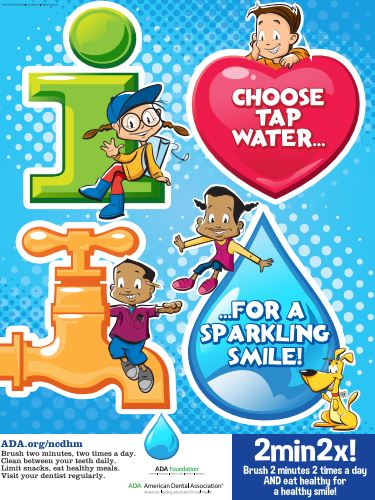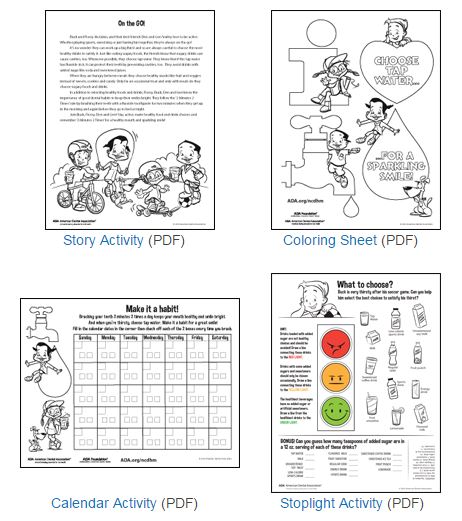
February is National Children’s Dental Health Month!
Having healthy teeth helps you chew foods, speak clearly, and look your best. By taking care of your teeth you can help prevent plaque (a film of bacteria that sticks to your teeth) and can cause gum problems and cavities – both of which can be very painful!
You should be brushing your teeth 2 times a day – usually after breakfast and before bed (but it is also great to brush after lunch and/or sugary snacks) – for at least 2 or 3 minutes each time you brush.
In addition to this, it is important to:
- Brush ALL of your teeth, especially the back ones
- Brush your tongue
- Floss
- Change your toothbrush every 3 months
- Visit the dentist twice a year (or more often if needed)
- Ask your doctor if you should be using an antibacterial mouth rinse
- Choose clean, tap water to drink over other beverages
- Limit sugary treats and drinks

